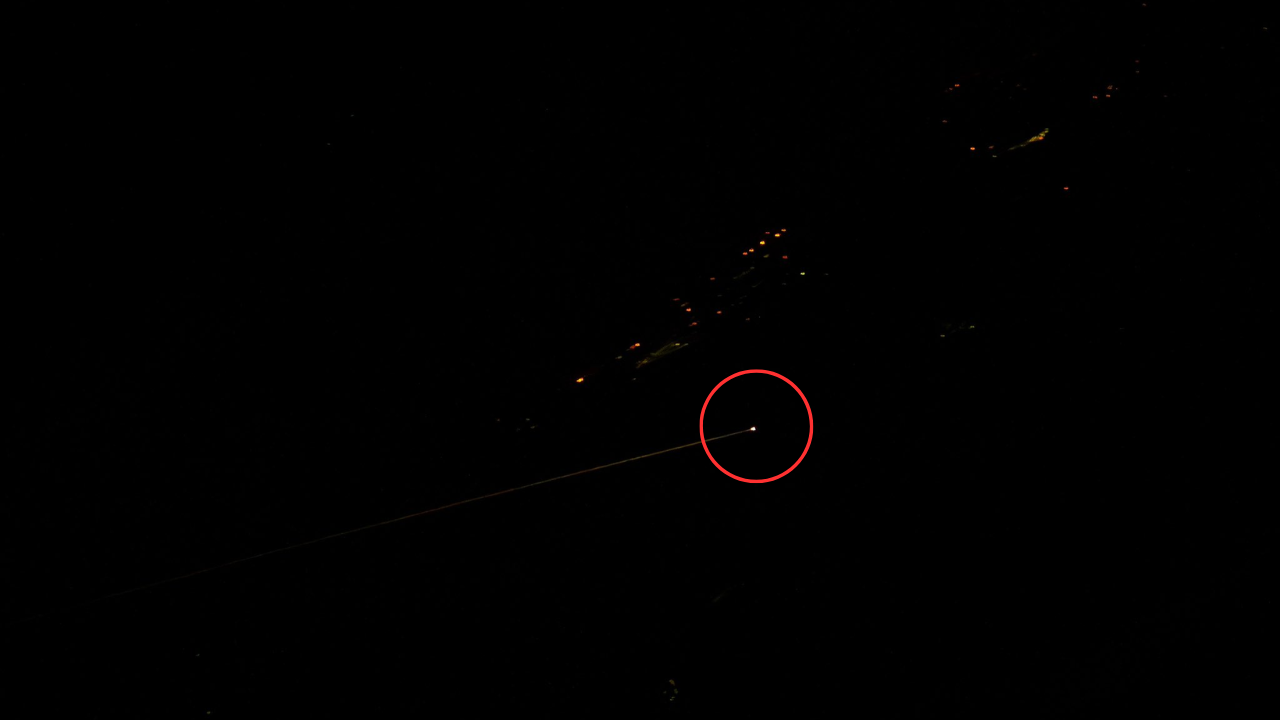
An epic picture of Polaris Dawn's nighttime reentry has been beamed to Earth from space.
NASA astronaut Don Pettit caught the conclusion of Polaris Dawn, a private space mission that included the first-ever commercial spacewalk, during its SpaceX Dragon spacecraft's return to Earth before dawn on Sunday (Sept. 15).
"In addition to the multi-colored entry trail over Florida, the basic cone shape of the Dragon capsule can be seen," Pettit wrote on X, formerly Twitter, Sunday afternoon about his picture taken from the International Space Station (ISS).
Related: Exquisite Star Trails Captured by Astronaut Don Pettit (photos)
Pettit, who launched to the ISS on his fourth space mission on Sept. 11, is known for his dramatic pictures of star trails and other space phenomena when he is on orbit. He obtained the imagery from the cupola, a wraparound window set on the ISS that points at Earth.
"We've got a number of new lenses on orbit that are optimized for nighttime imagery. I'm really looking forward to getting back on station and taking nighttime imagery to a new level," Pettit told Space.com in a pre-launch interview.
His other crew members were excited to see Pettit at work, as fellow NASA astronaut Matthew Dominick noted on X. "So many of us were packed into the cupola this morning to watch Polaris Dawn come back to Earth. It was fun watching [him] make this shot happen amongst five human bodies jammed in the cupola," Dominick said.
"Actually," Dominick added, "I think having lots of folks jammed in helped him stabilize his body and thus the camera for the shot."
Polaris Dawn, the second mission funded by billionaire Jared Isaacman, launched on a on a SpaceX Falcon 9 rocket early Tuesday (Sept. 10) from NASA's Kennedy Space Center in Florida. Pettit captured the mission's conclusion after five days in space.
Isaacman commanded Polaris Dawn his second space effort after funding and flying SpaceX's Inspiration4 in 2021. Also on board Polaris Dawn were mission pilot and Isaacman business associate Scott "Kidd" Poteet, as well as SpaceX engineers Sarah Gillis and Anna Menon.
Aside from Isaacman and Gillis working outside the capsule during the first commercial spacewalk, the mission's peak altitude of 870 miles (1,400 km) from Earth was farther than any crewed spacecraft since the moonbound Apollo 17 in 1972.







